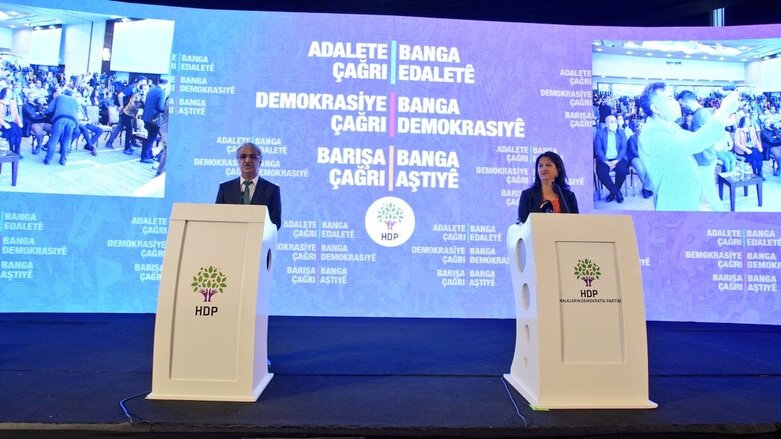Kurdish opposition blames Turkey's ruling parties for changing electoral law
"The AKP-MHP alliance has passed new electoral law amendments in the Turkish parliament."

ERBIL (Kurdistan 24) – The pro-Kurdish Peoples' Democratic Party (HDP) blamed the alliance between Turkey's far-right Nationalist Movement Party (MHP) and President Recep Tayyip Erdogan ruling Justice and Development Party (AKP) for changing the electoral law in a statement on Monday.
"As a response to its declining popular support and legitimacy, and just one year before the presidential and parliamentary elections, the AKP-MHP alliance has passed new electoral law amendments in the Turkish parliament, bringing in regulations calculated to keep them in power," Feleknas Uca and Hişyar Özsoy, co-spokespersons of the HDP's Foreign Affairs Commission, said in the statement.
According to the HDP, on Mar. 31, 2022, Turkey's parliament approved electoral law amendments that would manipulate the election in favor of the ruling AKP-MHP. The amendments will reportedly come into effect next year.
"The new law decreases the threshold that must be passed to enter parliament from ten percent to seven percent. Importantly, it also changes the way that parliamentary seats are allocated among members of an alliance - at the expense of the opposition," the HDP said.
"It is obvious that the AKP-MHP alliance changes the election law according to its own needs. These changes will not bring a democratic and fair election," the HDP officials concluded. "Rather, they will block the representation of various social dynamics in parliament and further undermine the will of voters as reflected in the ballot boxes."
The next national elections in Turkey are expected to be held by 2023.
The AKP has lost support due to the deteriorating economic situation in Turkey. However, it's still unclear if the divided Turkish opposition could challenge the AKP's alliance with the MHP.
It might be difficult for the HDP to form alliances with Turkish right-wing parties such as the Republican People's Party (CHP) or the right-wing IYI party since they follow different ideological principles.
Read More: Pro-Kurdish party open to negotiations with any political actors that follow its principles
The leader of Turkey's right-wing opposition İYİ Party Chair Meral Akşener, recently said she wouldn't sit together with the HDP, T24 reported.
Nevertheless, during the March 2019 municipal elections in Turkey, the HDP, in a gesture with the CHP, did not field candidates in cities west of Turkey with sizable Kurdish populations, namely Istanbul, where the party has over one million votes, the capital Ankara, Izmir, Adana, Mersin, and Antalya.
That move helped the CHP win in most of these cities as part of an uneasy de facto alliance. However, it's far from clear if this de facto alliance will continue in the future.